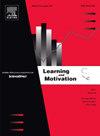用可视化GenAI反馈提高英语写作:从学习的角度看复习质量、情绪反应和人机交互的认知情感理论
IF 1.7
4区 心理学
Q3 PSYCHOLOGY, BIOLOGICAL
引用次数: 0
摘要
随着大型语言模型和自然语言处理技术的快速发展,生成式人工智能(GenAI)聊天机器人为支持英语学习者的写作和修改提供了新的机会。然而,现有的GenAI聊天机器人的输出主要以纯文本格式呈现,这可能会带来很高的认知负荷并引发负面情绪反应。尽管人们对GenAI辅助写作教学越来越感兴趣,但关于GenAI聊天机器人输出的视觉增强如何改善复习结果和学习者情感体验的研究有限。基于媒体学习的认知-情感理论,本研究采用自主开发的genai写作聊天机器人来研究可视化反馈对英语学习者写作表现和复习时情绪反应的影响。采用2(时间:测试前和测试后)× 2(反馈方式:可视化与非可视化)准实验设计。A组(N = 30)收到标准的纯文本反馈,而B组(N = 30)收到包含颜色变化、表格格式和加粗文本的可视化反馈。前、后测试和问卷调查结果表明,视觉反馈显著提高了学习者写作的连贯性和凝聚力,减少了负面情绪,降低了认知负荷。这些发现为语言教育者、学习者和开发者提供了实际意义,强调了人工智能生成的内容如何在构建情感支持和认知有效的基因人工智能辅助学习环境中发挥关键作用。本文章由计算机程序翻译,如有差异,请以英文原文为准。
Enhancing EFL writing with visualised GenAI feedback: A cognitive affective theory of learning perspective on revision quality, emotional response, and human-computer interaction
With the rapid development of large language models and natural language processing technologies, Generative AI (GenAI) chatbots have offered new opportunities for supporting EFL learners in writing and revision. However, existing GenAI chatbots’ output is predominantly presented in plain, text-only formats, which may impose a high cognitive load and trigger negative emotional responses. Despite growing interest in GenAI-assisted writing instruction, limited research has examined how visual enhancements to GenAI chatbot output might improve revision outcomes and learners’ emotional experiences. Grounded in the Cognitive-Affective Theory of Learning with Media, this study employed a self-developed GenAI-powered writing chatbot to investigate the effects of visualised feedback on EFL learners’ writing performance and emotional responses during revision. A 2 (time: pre-test and post-test) × 2 (feedback mode: visualised vs. non-visualised) quasi-experimental design was employed. Group A (N = 30) received standard text-only feedback, while Group B (N = 30) received visualised feedback incorporating colour variation, tabular formatting, and bolded text. Results from pre-and post-tests and questionnaires indicated that visualised feedback significantly improved coherence and cohesion in learners’ writing, reduced negative emotions, and resulted in lower cognitive load. These findings offer practical implications for language educators, learners, and developers, highlighting the critical role of how AI-generated content is presented in building emotionally supportive and cognitively effective GenAI-assisted learning environments.
求助全文
通过发布文献求助,成功后即可免费获取论文全文。
去求助
来源期刊

Learning and Motivation
Multiple-
CiteScore
2.90
自引率
0.00%
发文量
53
期刊介绍:
Learning and Motivation features original experimental research devoted to the analysis of basic phenomena and mechanisms of learning, memory, and motivation. These studies, involving either animal or human subjects, examine behavioral, biological, and evolutionary influences on the learning and motivation processes, and often report on an integrated series of experiments that advance knowledge in this field. Theoretical papers and shorter reports are also considered.
 求助内容:
求助内容: 应助结果提醒方式:
应助结果提醒方式:


